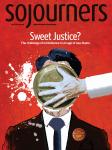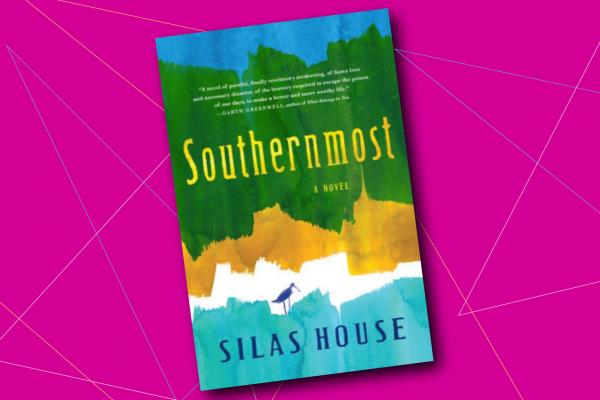TO BE A FATHER is to be an example, and the writer Silas House knows this well. His latest novel, Southernmost, is the story of a father and pastor named Asher who strives to do what’s right, while his young son, Justin—who is distrustful of the church—watches.
But Asher’s quest for morality places him on a path of unwanted attention and threatens to separate him from Justin, until Asher makes the questionable decision to take his son with him on a journey for which neither of them are prepared.
Rarely have the church’s tensions about homosexuality—and how deeply those tensions can fracture a family—been explored in fiction. But with this, his sixth novel, House explores how Asher’s relationship with his wife, Lydia, disintegrates when, to Asher’s disgust, she turns away a gay couple in need of shelter after a flood. House examines Asher’s heart, which is broken over his failure to defend his brother Luke when they were young, forcing Luke to go it alone in dealing with societal hatred over his sexual orientation. In Asher’s heart, House finds hope and desire for a faith that welcomes more than it excludes.
“The lush dark green of the trees, Luke’s clenched jaw, his refusal to cry,” House writes. “Up on the ridge a congregation of starlings arose in a great humming movement of blackness from the hickories, hundreds of birds becoming one undulating mass. A sign, [Asher] had thought back then. A wonder.”
Southernmost is full of such beautiful sentences that move with divinity, and House is a master of plot. Almost every major development of his narrative shocks, even though the reader should have seen them coming. I marveled at how many of the novel’s plot threads evolved, disappeared, resurfaced, and were eventually resolved.
Despite House’s skill, Southernmost is a moderately flawed book—full of tropes and sometimes heavy-handed. It begins in the middle of a devastating flood—the sort of water imagery that fills almost every novel about Christianity I’ve ever read.
And the character Lydia is severely underdeveloped, used only in service of the message House wishes to convey about what does and does not constitute good Christian faith. A novel about a preacher shouldn’t be preachy, but at moments I wondered whether I had the strength to wade through its waters to get to the other side.
But wade I did, and I’m glad I did, because many sections of House’s book—especially its final pages—contain immense power and grace:
“Asher tipped the cup to the side for him to get more water and the dog continued to stare at him as he lapped up more,” House writes. “The whole time his eyes were saying Thank you so much that’s the best damn water I’ve ever had in my whole entire suffering life .”
House has written a novel about kindness and mistakes that speaks plenty about both the world we live in and the better world we could be living in. Southernmost explores the wages of sin, placed not at the feet of LGBTQA people but with those believers who have dehumanized them.
“We’ve got to stop this judgment!” Asher tells his congregation early on, partially realizing the error of his ways. It takes the rest of the novel for Asher to fully understand what he’s done and what he must do. Perhaps those same words can one day be said about readers of this fine work by Silas House.

Got something to say about what you're reading? We value your feedback!

